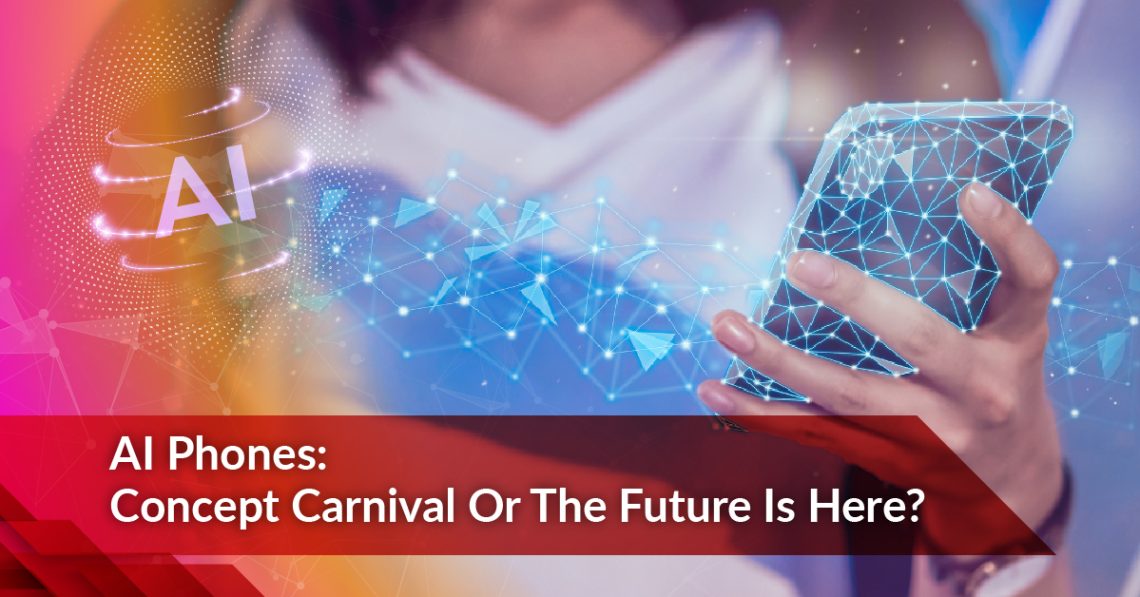The smartphone landscape is evolving rapidly, and at the forefront of this transformation is the integration of artificial intelligence (AI). From enhancing user experiences to streamlining operations, AI phones are increasingly becoming part of our daily lives. However, the question remains: are these innovations a mere carnival of concepts or a genuine glimpse into the future? This article explores the current state of AI phones, their potential impact, and the challenges they face in becoming mainstream.
What Are AI Phones?
AI phones are smartphones that leverage artificial intelligence to enhance their functionality and user experience. This integration of AI technologies can be seen in various features, such as:
Voice Assistants: AI-powered voice assistants like Siri, Google Assistant, and Alexa allow users to perform tasks using voice commands, from sending texts to controlling smart home devices.
Camera Enhancements: AI algorithms enhance photo quality by optimizing settings based on the scene, enabling features like portrait mode, night mode, and object recognition.
Personalization: AI analyzes user behavior and preferences to deliver personalized content, app recommendations, and tailored settings, improving user engagement.
Battery Management: AI can optimize battery usage by learning a user’s habits and managing power consumption accordingly, extending the phone’s battery life.
Security Features: AI-driven facial recognition and biometric security enhance device protection, making it harder for unauthorized users to gain access.
The Potential Impact of AI Phones
AI phones have the potential to significantly impact various aspects of our lives:
Enhanced User Experience: By anticipating user needs and automating tasks, AI can make smartphones more intuitive and user-friendly. This not only saves time but also improves overall satisfaction.
Improved Efficiency: With AI handling routine tasks, users can focus on more important activities. For instance, AI can sort emails, schedule appointments, or even manage finances, streamlining daily operations.
Advancements in Communication: AI can facilitate real-time language translation, making global communication more accessible and breaking down language barriers.
Health Monitoring: AI phones equipped with health monitoring features can analyze users’ physical activity and health data, providing valuable insights and prompting healthier lifestyle choices.
Impact on Industries: As AI phones become more prevalent, industries like marketing, education, and healthcare will adapt to leverage these technologies for better customer engagement and service delivery.
Challenges Facing AI Phones
Despite the promising potential, AI phones also face several challenges:
Privacy Concerns: The integration of AI often requires collecting and analyzing large amounts of personal data. Users may feel uneasy about how their data is used, raising privacy and security concerns.
Reliability and Accuracy: AI systems are not infallible. There are instances where voice recognition fails or AI-generated recommendations miss the mark, leading to frustration and distrust among users.
Cost and Accessibility: Advanced AI features often come with a higher price tag. This can make them less accessible to a broader audience, limiting the potential market for AI phones.
Market Saturation: The smartphone market is already crowded, and standing out with AI features can be challenging. Companies must continuously innovate to remain competitive.
Consumer Skepticism: Some consumers may view AI as a gimmick rather than a practical enhancement, which could hinder widespread adoption.
Conclusion: The Future Is Here?
AI phones are undoubtedly at the forefront of smartphone innovation, offering features that enhance user experience and efficiency. While they present exciting possibilities, there are hurdles to overcome before they can be fully embraced by the masses.
As technology continues to advance, the future of AI phones will likely depend on addressing privacy concerns, ensuring reliability, and demonstrating tangible benefits to users. If companies can successfully navigate these challenges, AI phones may not just be a concept carnival but rather a significant milestone in the evolution of smartphones, ushering in a new era of technology that truly enhances our lives.
In summary, the future of AI phones is promising, but the journey toward their full realization is just beginning. As consumers, we stand on the brink of a revolution—one that has the potential to redefine how we interact with technology.
Are you ready to dive deeper into the topics you love? Visit our website and discover a treasure trove of articles, tips, and insights tailored just for you!





